D: Hello!
J: Hey! David Baldacci, damn! This is good. I'm excited. I am excited about this. I asked Stephen King, he didn't get back to me. But, you know, the heck. Is this your office?
D: Yeah, this is my office. Yes, Northern Virginia.
J: Great looking.
D: You too. How are you doing?
J: Good, good, good. Yeah, we're up in New York, up the Hudson River. Yeah, it's like two and a half miles wide here. It's beautiful. And Rockefeller's place is that away, and he bought all the land across the river, and he never wanted anything built on it. He gave it to New York State, but he said, you can't build anything. So from where we are, I see nothing but mountains, which is, which is very cool.
J: So anyway, my grandmother, who was great, she had this thing, she said, “Hungry dogs run faster.” And it’s just kind of driven me, and she said, you know, you can kind of accomplish anything you want to. You're not going to play in the NBA, so get that out of your head, but some other stuff you could do. And most importantly, she believed in me. So who believed in you along the way?
D: Yeah, certainly my parents did. I mean, I grew up in Richmond, Virginia, right in the middle of segregation, Jim Crow - and I could have turned out very differently, but the magic formula for my family is they took me and my siblings to the library every week, so I got to travel the world without a plane or a passport. And that really changed my whole life. And my mom gave me a journal when I was seven or eight years old to write down some of my stories. And, you know, like you, I grew up with limited economic means, but that's sometimes give you a belly fire.
J: Yeah, I think it helps your understanding of people… I didn't have much money in beginning and in the middle and whatever. And you just, you know where people are coming from, I think a little better that way.
D: Yeah, but it's nice to have someone to believe in you for sure.
J: Yeah. Oh, 100%. We're very lucky that way. Did you ever have people along the way who didn't believe in you? Your writing? or whatever the heck, you know.
D: Of course, you know, I mean, I spent 15 years writing short stories, and, you know, got crap in return, not very much constructive criticism, just a lot of criticism. And either you know, you let those wounds kill you, or you keep moving forward. And I think both of us made the decision to keep moving forward.
J: Yes yes. Somebody said you're lucky if you find something you like to do, and then it's a miracle if somebody will pay you to do it.
D: I tell writers all the time, you know, when they're having bad days, I say, just take a step back and realize that you get paid to make shit up for a living. You know, how many people would love to do that?
J: And they're nonfiction writers.
D: Ha!
J: So, you know, Virginia and then Virginia Law School, which is I, actually, I picked between Vanderbilt and Virginia for, for grad school. I don't know why. Well, actually, I do know why, because they really gave me money to go to Vanderbilt. So that was, that was an easy pick. Actually, it wasn't an easy pick because I really liked the Virginia thing. You know, it's interesting to me about the whole college admissions and whatever, and it's still this way, up to a point. So much of this is about about kids who retain information, which ultimately isn't all that useful. It was really useful in the Middle Ages. And now, not so much. But what? How do you, you know, whatever, now you have kids and whatever, and off to school. And any thoughts on that?
D: You know, I loved going to law school, because law school was all about solving problems and critical thinking, and yes, you had to memorize a bunch of stuff. But we all knew that was just for show, that was just to pass the bar exam and our school exams, but people came to lawyers because they were in trouble and they needed fixing and they needed solutions, and needed to think how to get them through that. And I've used that in my life as a writer. I've used it in my life as a business person, you know, negotiating deals and contracts with lots of people, I've used those same skills, and I think a lot of writers shy away from that. They don't like to get into the business part of it. And look, no one will care more about your career than you.
J: That’s for sure. Well, you know you mentioned that phrase solving problems.
D: Yeah.
J: And that's a huge thing. I think, no matter what it is, whether it's your life, your kids, your spouse, and certainly in the book business, it's the same thing. I mean, it's always just, here's a problem. You know, for example, when I brought my autobiography to Little, Brown, I said who the hell wants to read about me? I mean, that's the problem. That's the problem to solve. And don't nod so knowingly when I say that.
D: Ha!
J: No, but it is, and then we were fortunate enough to get some quotes, and I don't know these people, but and they were really, like Bob Woodward said, and I don't know Bob, but it was the coolest quote. You could tell..this is a real quote. He's not like, you know, searching for a couple of adjectives or whatever.
J: So, boom, Absolute Power. Yikes, Holy mackerel. And what did that do to you?
D: It changed everything. It changed the whole future of my life. It gave me the opportunity to write fiction instead of being a lawyer the rest of my life. And, I mean, it was just, it was surreal. And I was, I was just overnight success after 5000 nights. People were throwing money at me. I didn't even know who they were or what it was for, but it allowed me to, for the first time my life, be able to write full time, you know?
J: I was a little luckier with the first book, and then it took me a while to really get going. But John D. MacDonald, he sent a quote (I was 26 at the time). He said, “I'm quite sure James Patterson has written a million words before he started The Thomas Berryman Number”, which was inaccurate, but it was close. It was close.
J: So interestingly, with Absolute Power, actually, Larry Kirshbaum, who is brilliant…he could really find good people. I mean, he found you, I think he found Nick Sparks. He found me, basically, and he sent me your book and it might have just been the manuscript, even before ARC. And I read the first couple of chapters. I remember exactly one or two. Whatever it was, I went, “Yes!” He was curious about how I would respond. He sent me Sparks’ The Notebook too and I said, “yep.” I'm not necessarily a romance reader, but I think…this guy can tell a story.
D: That’s what it's all about. There aren't many Larrys left.
D: I gotta tell you too, you know, I will fan over you too. Along Came a Spider…just blew me away and I remember there was no picture on the back, and I was like, “Who the hell is this James Patterson guy?”
J: That was publisher and I think they were being a little sneaky there.
D: I get it. But again, it was a great story, and that's what people want. I mean, they don't necessarily care about how fine the language is and all that. But they want to, they want to just lose themselves in something.
J: Yeah, yeah, yeah. And I think we're losing that a little bit too in terms of publishing. You know, one of the things about Larry and at that time, the guy, I'm blanking on his name, but the guy that ran Simon & Schuster, they were both good spokespeople. They got out there. They made some noise about books. And we need that. We need people. I mean, they obviously in the movie business, they do it like crazy, but the books need that desperately.
J: You know, there's a phrase out there which I just curious about, how you feel about it, which is, they'll talk about some books as guilty pleasures…I don't buy into that. But how do you feel about that?
D: I feel like that the same way when people come up to me say, how do you keep cranking these books out? And I'm like, yeah, you crank when you're making buttermilk, you don't crank when you're writing a book, right?
J: ‘Prolific’, another one of my least favorite words.
D: Right, those phrases bother me, and but I try to dispense with them, not think about that one.
J: I think to me, especially as we are right now, and maybe this will be the future. Somebody goes to the bookstore, I want to put a star on their head. They go to a library, put another star. They're reading a book, put a star on there. This is good stuff. You should never feel guilty about that. And also the notion of…some people, may have a different soap opera that they like to read…and that's fine.
D: Yeah you can create a reader, and you have no idea where that reader is going to go after the first day, after the first book. And people talk about, well, you know, a lot of these books are getting popular on Tiktok. And I'm like, that's great.
J: Yeah, 100%. It is good. It is good. As you know because I sent you a note about A Calamity of Souls, which I love.
D: Yes.
J: And I guess that takes you talking earlier about your experience growing up, you know, and what was going on at that period. But I love that. I thought it really, it was a great story. It was really moving. The characters are terrific. And I like The 6:20 Man a lot too. I mean, I'm just picking those two as more recent, and you have another 6:20 Man coming out soon, right?
D: Yeah, November is To Die For. That'll be the third. Well, thank you. I appreciate it. They were two very different books, but books that, you know, I felt really compelled to write, particularly Calamity.
J: Now had you been toying around with Calamity for a while, or something about it, or the area?
D: Over a decade, I kept…my my wife bought me a journal for Christmas in 2011 and I went to my little home office and wrote A Calamity of Souls. And I started to write the book. I wrote the first 150 pages by hand in that journal, and then set it aside for years. I would go back to it and read it, and, like, I'm never going to finish this book. And then, the last five or six years, I thought, well, I think this book is still relevant, so let's have a go at that and finished it.
J: Peer approval…like I'll send a note to Grisham every once in a while. But, I mean, does that mean anything to you?
D: No, it does. Yeah, absolutely. Look, it's a competitive business. We all know that. But it's nice to get a pat on the back sometimes from people you respect too. Like, you know, if I were a football player and I got, you know, a note from somebody who was in the Hall of Fame, I would go, uh huh yeah, okay.
J: Yeah, that would be cool. Yeah, I could go for that. I spent a little time with Steph Curry. That was nice. What about you mentioned competition? Are you competitive with authors?
D: You know, probably I was more so earlier.
J: Are we competitors, David?
D: No, we are comrades.
J: All right, that's right, that's right,
D: But not as much as I used to be. Although, you know, there are some writers out there who are still, you know, I feel like they're really competitive, but then when you actually sit down, you get to know them, talk to them, you have a good time. You have the same war stories you can tell. You have areas that's similar and things are good. I think more writers should get together more often, actually.
J: Yeah, well, that's going to be a fun thing, because I'm going to do a batch of these. I did Elin Hilderbrand, and I did TJ Newman. I'm going to do, I think President Clinton and Hillary somewhere along the way. So it'll be fun and interesting. We'll try to keep it short and you know, no curveballs, no gliders, nothing nasty, no politics, you know. Which brings me to the notion of the haters. Do they ever hurt your feelings? Or you just kind of go like, “oh, whatever..”
D: Yeah, I'm at the I don't really care stage. Why in the world would I listen to somebody when I don't even know who they are or where their agenda is? Life is too short for that crap.
J: At least we sign our stuff. They don't even sign it. I'd have a little bit more respect if they signed it, put their phone number so we could call them up, you know?
D: Yeah, exactly. And their address would be even better.
J: Yeah, yeah, right, that's right. Here's a little little letter for you.
J: So, I'm sure you get asked about it a lot, so we'll try to some little spin on it. But now, one thing I read somewhere is that sometimes when you're cruising toward the end of a book, you'll do really long days, 10-12, hours, 15 hours, whatever. Is that kind of, what happens?
D: Yeah, yeah. You get really immersed in it. And there's like this hunger to get to the end. Get everything in your head you want to get out. And sometimes I'll write a pen ending, and I'll send it up and and let them know, and they know this is not going to be the real ending. I'm still working on it…and you go back and sort of, you know, finesse it a little bit more.
J: That's sort of like saying this doesn't work, but trust me, don't worry. I'll do something better.
D: I will get there.
J: Yes. So do you usually know, obviously not all the time, but do you usually know what the ending is going to be?
D: I've tried outlining, and it just doesn't work for me,
J: That’s interesting.
D: I know and look, I know you're an outliner, and that works great. For me, not so much. I just I write better in the trenches when I'm actually in the middle of something and I seen it. But I tell people…look, you can outline, you cannot, you can change… you don't have to stick to the same protocol throughout your entire career, whatever works at that moment in time.
J: So, yeah, no I'm not a slave to the to the outline, but I do like the outline. I like when I sit down that there's…okay, in theory…this is what I am supposed to write about today. I think for some people, it's really useful. And obviously, Finnegans Wake, I don't think he had an outline, but that's an outline I'd like to see, right?
J: You know, so years back, this is kind of funny thing. I was in, I think I was in Rome. I it might have been Milan. I go into a bookstore there, and I see one of your books because I recognize the cover. And I go, “What the hell somebody totally ripped him off!” It’s this guy David Ford. So tell us about that little sucker.
D: Yeah. So I was at home. My agent called and said, I got your Italian publishers, Mondadori. They love Absolute Power. It's going to be a great novel for them. But they have a problem with the name. I thought he meant the title of the book. But apparently Italians don't want to read books written by other Italians, particularly thrillers. So they wanted an American name, and I didn't know what the hell that meant. And I looked out the window at the car that was parked in our driveway, and said, “Okay, how about David Ford?” Because we had a Ford back then. Wow, that sounds American. So the Italians loved it. They thought it was genius. So I was David Ford for a couple of books, and I was David B. Ford, and David Baldacci Ford, and then David Baldacci.
J: Thank God it wasn't a Maserati. It would have been the same problem.
D: You know, I just had a Subaru when I got married. David Subaru probably wouldn't have cut it.
J: I don't get these weird things, like people driving Maserati SUVs? What is that? That's like, weird to me. What is a Maserati station wagon? I'm confused.
D: I've seen the Lamborghini SUV and again, like, what's the point?
J: Yeah, I guess maybe they're really fast.
D: I guess so. You know, if you want to spend the million dollars on an SUV…
J: Speaking of Italy, at a certain point you went to the town where your grandfather grew up, right? So, what happened there?
D: Yeah, it was supposed to just be lunch with the mayor, and we had some friends who were traveling with us, and we got there, and it was like bedlam, and there was posters of me all over the walls. And it turned out it was David Baldacci Day. My wife was furious, because it supposed to be just lunch, and we were there all day. And, I mean, it was quite surreal, and gifts, and I had to give a grand speech that I had not prepared for of course…and I did get to see where my grandfather was born and grew up. And that was amazing.
J: You speak any Italian?
D: No, because my father didn't, because we're in America now. That was a terrible, you know, misfortune. I would love that. Although my my daughter, now she's trilingual in Spanish and Italian.
J: Oh, really?
D: Yeah.
J: So, you have a son and a daughter?
D: Yep.
J: So it's an interesting thing for well-known parents or famous parents or whatever, in terms of how the kids deal with that. How do your kids deal with that? How have they dealt with it?
D: Well, my daughter was in high school and then college, and then out in the world, she just never talked about me. And if anybody brought up the name, she felt like, yeah I think he's a distant relative.
J: Okay, proud of you. Good, excellent.
D: So that's and I totally get it, you know. It's not like, you know, we're not movie stars and athletes. It's sort of like we have this anonymity. We're anonymous celebrities.
J: Yeah. A bit. A bit. I was in Italian restaurant in Florida, this place we go to a fair amount, and the waiter walked us down the aisle. This woman pops up and she goes, “I know you. I know you.” And you try to be nice. And then she goes, “You sold us our life insurance!” And I’m like, “Oh, really?” And she insisted. She would not, she wouldn't let go of that. It was an interesting thing.
J: Hollywood, another interesting place. We had one of my books, and they were developing it. And the poor screenwriters, I mean, they give them, like, 15 pages of notes…this particular one, it was actually the Women’s Murder Club. And one of the executives, who was, who is a bright person, he said, “Look, let me simplify this.” Thank God, not for me, but for the screenwriters. He said, look, make us love Lindsay Boxer, who is the lead character in that, and I'll greenlight it. And that's the kind of notes that I think are useful.
D: Oh yeah.
J: Big notes, not the little, you know, we can get to those (little) things. Okay, we got the time wrong and whatever the heck. But with the big notes and some of these…you go in and you listen, and sometimes it makes me ill to listen to these things, the things you're talking to the screenwriters about, and there are like 12 people on the call and stuff. You're like, really, yeah, this is, this is okay. This is why it's so expensive, or whatever. So what's your experience in Hollywood, though? So, Absolute Power you do Clint Eastwood, that's interesting.
D: Yeah, that was that was a bang to start off. That's when all the planets were in alignment for some odd reason. And ever since then, it's been a lot weirder and tougher and more frustrating. I mean, I have, in the last year and a half, I've sold five projects to various ones, two at Netflix, two at Amazon, one at NBC Universal. And we'll see. And you know how this is, we'll see…but I what I try to do, because at the end of the day, any contract you sign is only worth whether you're actually willing to go to court and spend a lot of money on lawyer and enforce it, right? So I sit down with the filmmakers and the writers before I agree to anything, before I sign a contract to get their take on what they want to do. And if it is not close to what I want… I just walk away. If it is, I sign the deal, then I still kind of walk away. I'm still there to get the input and help, however, but they're going to do it, and I'm going to trust them to do it well. And if it gets made, that'll be, it'll great. I don't obsess over this stuff anymore. It's apples and oranges.
J: Because you go crazy…the new Cross thing has been shot and tested for, so I know that that's a go in November, and we have actually a documentary on the terrible murders in Idaho, and that's shot and edited. So I believe in those. We started The President is Missing, the book I did with President Clinton…we had shot for and then COVID came. We shot four days, and they never went back, and they just, that was the end of it, which is, that's the worst so far. We shot four days and then okay, that's over.
D: Well, typically, you think, okay, if they're actually out there shooting, and it's been cast in their own location then they’re doing it, but COVID blew everything up, you know, and the writers strikes, and then we have this, you know, AI looming over all of us. What is that going to mean going forward in the future? Yeah, I don't trust any of these tech guys to get this right, by the way.
J: The AI thing is such a mystery. The only thing I’ll bring up with that was there was, I can't remember the guy's name. He was one of the Eagles well, not Henley or whatever, he was with the Eagles, and known as kind of a wild man. And they went to him, and they they asked him about what the effect would be on music. And he said, until AI can come in there, wreck a hotel room and throw the television out into the swimming pool, I'm not going to worry about it. I like that answer, because it was like, it's kind of a stupid question anyway, because we don't know. And I love that answer. It was just such a great, wonderful answer.
J: They always ask you about your charities, and I'm not going to do that, other than your Wish You Well foundation, which is a is a wonderful thing. But, of course we should be giving money away. Of course we should.
D: Yes.
J: So the end, I mean, you know, yes, we do, and we should.
J: When I was a kid growing up…small town…and my grandfather used to, one day a week in the summer take me on his delivery route…and he had terrible voice, but he'd be singing, singing at the top of his voice, “Oh, Suzanna” … some songs like that. And he said to me, “Jim, I don't care what you do when you grow up, but just remember, when you go over the mountain to work in the morning, you got to be singing.” And I do, do you sing? You sing going over the mountain to work?
D: Yeah, I sing a lot in the shower, and I'm trying to, you know, impress myself and no one else.
J: Opera?
D: No, I don’t do opera, but I do stupid, silly songs. But as the years go by, I do really focus on all the positives…and that makes getting through the days a lot better. If you have healthy kids and happy kids. You’re only as happy as your least happy child, because they do dominate your your thoughts. But I just, I'm trying to, you know, focus more on all the positive stuff and let the negatives roll off.
J: I agree. Sone people think that's kind of simple-minded and shallow. To me, it's ridiculous to sit there and worry about stuff you can't do anything about…I can't do anything about that. I'm just not going to let it consume me. I can't, I can't do anything. I'd like to help, but I can't.
J: So, that's kind of what I have. I hope this has been relatively easy.
D: Oh, it has been great.
J: It's been fun for me.
D: Yeah, same here. I'm glad you're doing this. I mean, anything to get the word out with you know, writers and reading and more people should be doing it and as we all know, the more people we get to read books the better the world's going to be.
J: Yeah, I agree. I agree. To be able to think a little. You know, we have literacy. I think with kids, I was thinking about something called “thinkeracy” which is, we're going to really make an effort to get them thinking past their first thought in school. And if I did teach, I think I would (say) so what do you want to do after school? You could play soccer, you could read a book, you could rob a liquor store. So many possibilities. And just getting people thinking past that first thought, or the blank page, and for a lot of kids, it's getting past the blank page. Yeah, okay, we're gonna now, you see the blank page? There's nothing there. Let's write a letter on it. That’s a good start.
J: At any rate. Thank you so much for doing this. It's really fun for me, and I love your shirt. That's a cool shirt, man. That's a good
D: Yeah, I like your hat.
J: Yeah, P for Patterson, right? Also Penn, but whatever.
J: Thank you. Thank you. Thank you. This is great.
D: Well, we have a good rest of the summer, Jim. take care. Say hello to your wife.
J: You too. Don't write too many books. Not that I'm competitive.


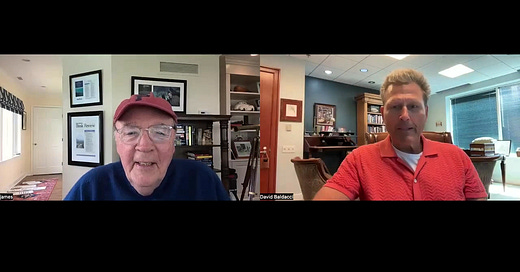



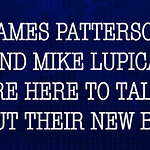

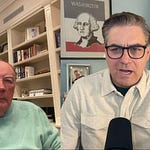



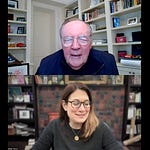
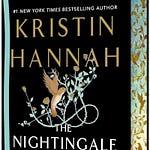
Share this post